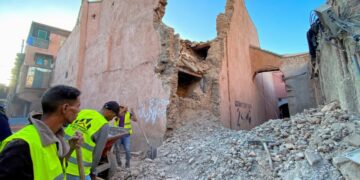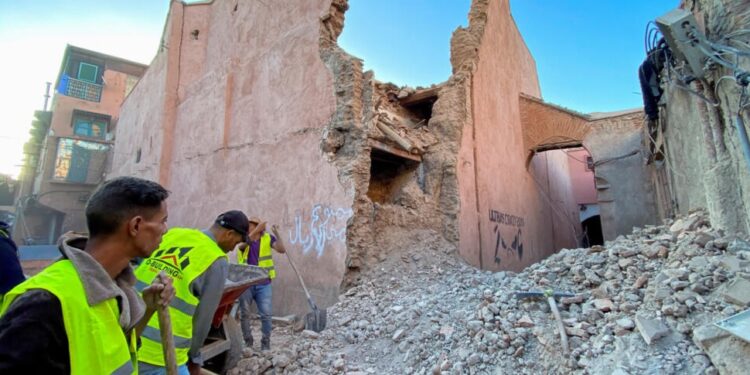By John Ikani
The death toll stemming from a powerful earthquake in Morocco has now surged past the 2,000 mark, with an equivalent number of individuals left injured.
According to the interior ministry, over 1,400 people are grappling with severe injuries, and the regions just to the south of Marrakesh have borne the brunt of the devastation.
In response, King Mohammed VI has declared a three-day period of national mourning and has issued directives for providing shelter, sustenance, and other forms of assistance to the survivors.
Numerous individuals find themselves spending a second night exposed to the elements.
The earthquake, measuring at a magnitude of 6.8, struck Marrakesh and various towns on Friday night. In remote mountain areas, entire villages are said to have been razed to the ground.
The epicenter of the quake was situated in the High Atlas Mountains, some 71 kilometers (44 miles) southwest of Marrakesh, a city renowned for its world heritage status and a favored destination for tourists.
However, the tremors reverberated as far as the capital, Rabat, which is approximately 350 kilometers away, as well as Casablanca, Agadir, and Essaouira.
The interior ministry reports that the province of Al Haouz has suffered the highest death toll, followed closely by Taroudant province. While Marrakesh has experienced significant damage, the loss of life there is comparatively lower, despite the considerable harm inflicted upon the UNESCO-protected ancient city.
In the mountainous villages, it is presumed that numerous modest dwellings constructed from mud brick, stone, and timber have collapsed, though the full extent of the devastation in these remote regions will require time to ascertain.
For the next three days, flags will be flown at half-mast on all public edifices across the nation, as announced by the royal palace.
King Mohammed has also directed the armed forces to lend support to the rescue teams, while citizens are rallying to donate blood as part of a nationwide endeavor to aid the victims.
The earthquake represents the deadliest Morocco has witnessed since the devastating 6.7-magnitude quake that struck Agadir in 1960, claiming more than 12,000 lives.
Furthermore, Friday’s earthquake ranks as the most potent to hit Morocco in over a century.
The United Nations has expressed its readiness to assist the Moroccan government in its rescue operations, and similar offers of help have been extended by several nations, including Spain, France, and Israel.
Despite recent tensions, neighboring Algeria has now opened its airspace to permit humanitarian flights to Morocco.



































